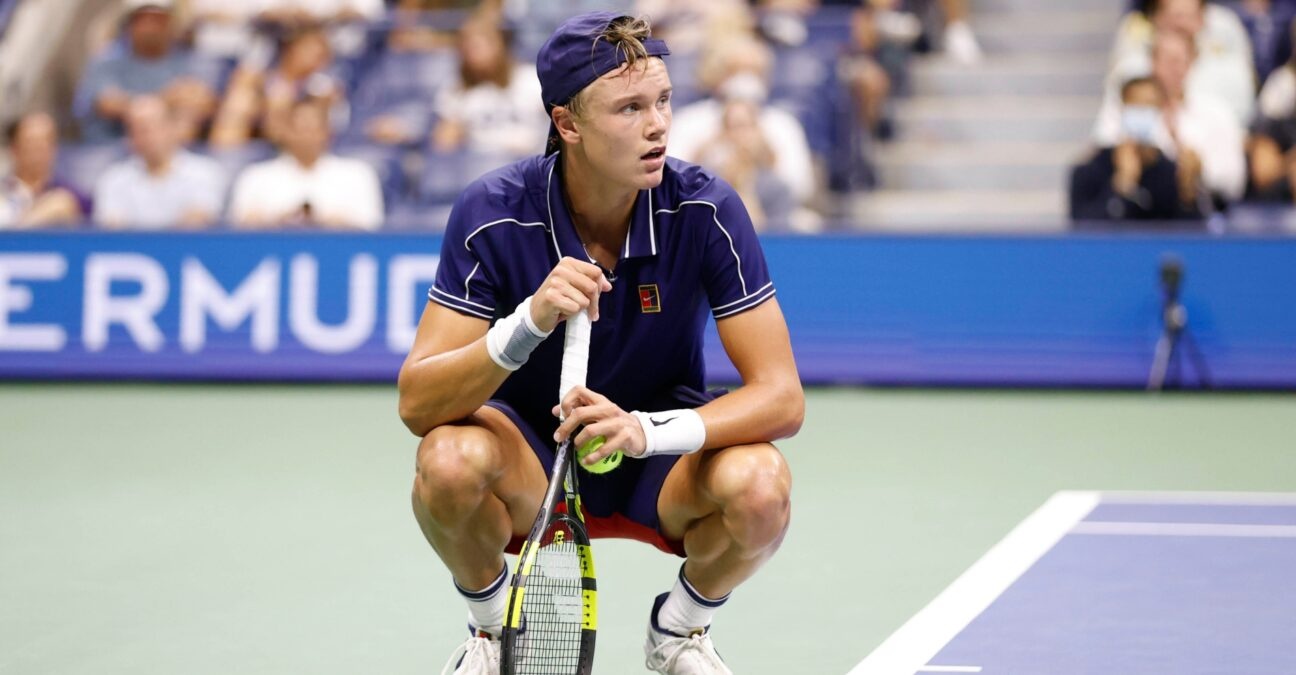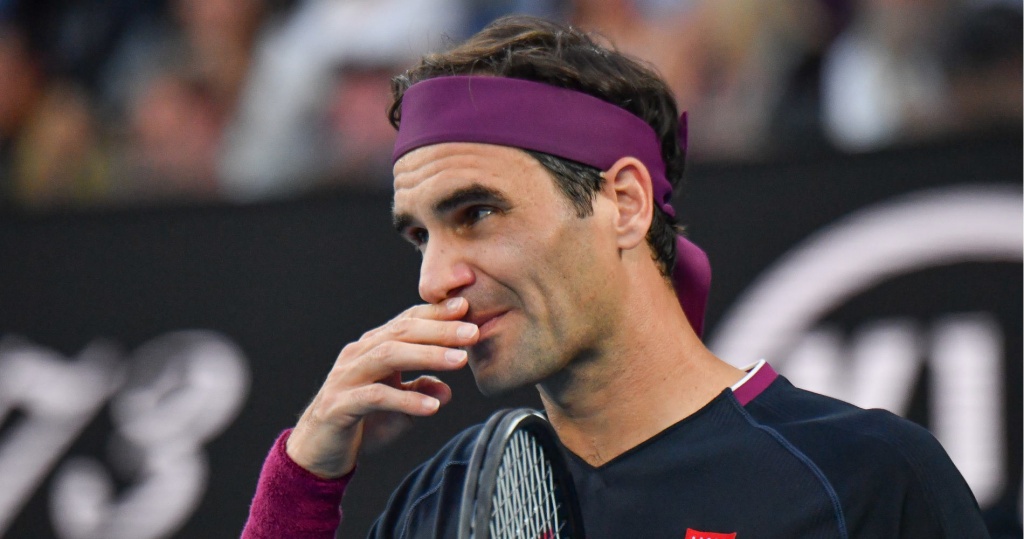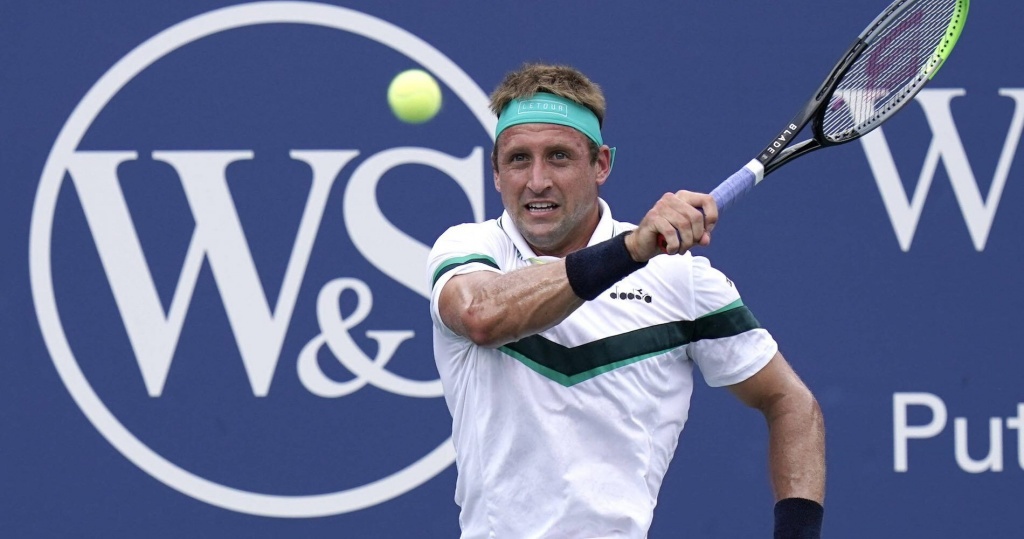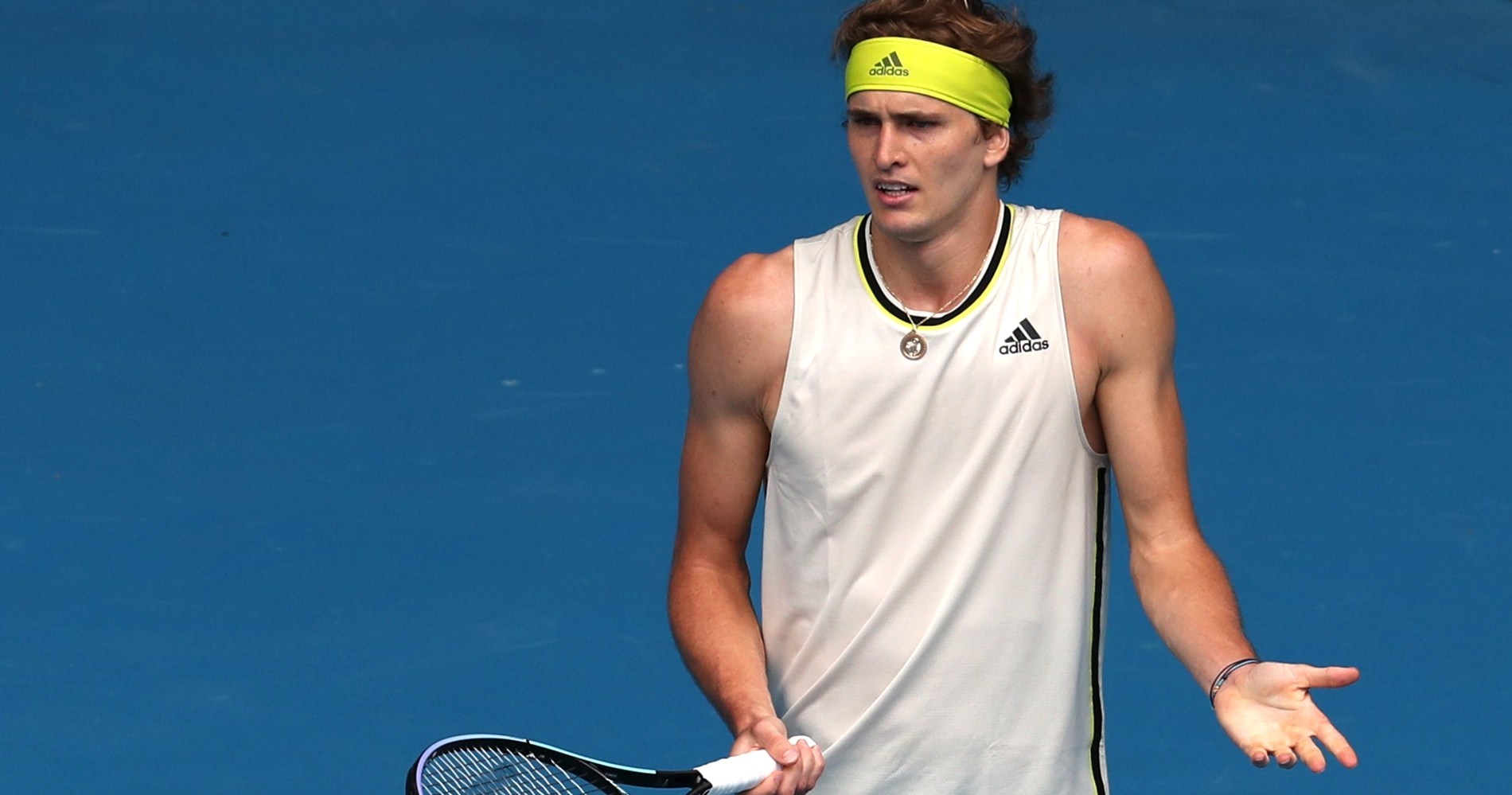“The system is unfair” – Danish teenage Holger Rune the latest to criticise ATP’s adjusted ranking system
Rune says the changes to the ranking system because of Covid-19 have slowed his progress, unjustly
 Holger Rune at the 2021 U.S. Open tennis tournament at USTA Billie Jean King National Tennis Center.
Mandatory Credit: Jerry Lai-USA
Image Credit: AI / Reuters / Panoramic
Holger Rune at the 2021 U.S. Open tennis tournament at USTA Billie Jean King National Tennis Center.
Mandatory Credit: Jerry Lai-USA
Image Credit: AI / Reuters / Panoramic
The ATP Tour’s COVID-19 impacted ranking formula has come under scrutiny once again after Danish teenager Holger Rune took to social media to vent his frustration at the system which lets players still retain some points from events held in 2019.
The 18-year-old Rune, a former junior world No 1 and junior Slam winner, has been rising up the rankings quickly – moving from No 474 at the start of the season to his current ranking of No 123. But Rune is not happy that the current system makes it harder for younger players like him to move up the the rankings.
“I feel tired and angry because I think the system is unfair”
Holger Rune
In a post on social media that went online on Sunday, Holger Rune says he would have been ranked No 62 in the world has the ATP been using the original 52-week rolling system for the rankings that were in place prior to the global pandemic. The Dane, who had set a goal of breaking into the top 100 by this year-end, lost in the qualifying event for this week’s Antwerp Open on Sunday and in his post, complained that he would have been able to enter better tournaments if he had been ranked as per the original system.
“You know I am a hard-working man and I normally never complain,” Rune said in his post. “This year I have fought very hard to achieve my goal of becoming top 100. ATP has continuously made it very difficult for me and many other young upcoming players because they have had a frozen ranking from 2019 meaning players on the ATP ranking still have their points from results made in 2019. “Looking two years back on the normal ranking I would today be ranked 62 in the world and not 124. Does it matter? Yes when you are ambitious and hard working it matters to get your reward. With that ranking I would be able to enter better tournaments and I would feel that my hard work paid off. I feel tired and angry now because I think the system is unfair. I love my tennis but we have to compete on equal conditions.”
ATP rankings slow to return to reality
To keep things in perspective, given the unprecedented circumstances that came about as a result of the global pandemic, any modified or adjusted ranking system would have been deemed unfair by at least some section of the players. But even as the world returns to some sort of normality – as normal as that can be – the ATP rankings continue to show some lethargy to reflect the ground realities. Rune is not the first player to feel wronged by the new system. Earlier in the year, both Alexander Zverev and Andrey Rublev were critical of the system as well.
The clauses in the ranking adjustment system that have irked Rune and several others are the ones below:
How will results from March 4-August 5, 2019 be treated?
Results from all levels of professional tennis during this period (4 March – 5 August 2019), not played in 2020, will be extended a further 52 weeks but weighted at 50 percent. Results from rescheduled 2020 events (Kitzbühel, Hamburg, Rome & Roland Garros) will also be included for an additional 52 weeks at 50%.
How will Tour-level events played after the Tour resumption count toward a player’s ranking?
Players who have played the same Tour-level event more than once between the 4 March – 9 August 2021 ‘best of ranking’ period can count their highest points total from the same tournament. The most recent result will only be included in his rankings breakdown if it is better than the earlier result. (Tour-level includes ATP and Grand Slam events)
This clause means that players still retain 50 percent of the points they earned for some tournaments in 2019, even if they played that event again in 2021 and did not perform as well this year.

Federer among those who benefit most from changes
A glaring example of how skewed the rankings are in the case is 20-time Grand Slam winner Roger Federer. The Swiss did not play any tournaments after the 2020 Australian Open last year and has a 9-4 record in 2021. Yet, he remains No 11 in the world this week.
Federer currently holds 3,285 ranking points as of October 18, 2021 – but only 225 points or 6.85 percent of that tally comes from events he played in 2021. The major chunk of his points – 1,440 points or 43.84 percent of his total – comes from events played in 2019, including Miami, Madrid, Halle and Wimbledon. These events did not take place in 2020 which means Federer can retain 50 percent of those points, if that counts for more points than he earned by playing them in 2021.
That means Federer will retain 600 points (at 50 percent of the original 1,200) for reaching the 2019 Wimbledon final until the 2022 Championships – three years – even though he played the 2021 edition and lost in the quarter-finals (worth 360 points).
The 720 points that the Swiss earned for reaching the 2020 Australian Open semi-finals also stay on his tally until the 2022 event. Rune does seem to have a point.
Further down the rankings, Federer’s compatriot Stan Wawrinka is ranked 57th. Wawrinka has only played six matches this year, losing three of them. He hasn’t played since last March (eliminated in the first round of the Doha tournament). The former world No 3 has 1092 points, including the 360 points he earned after reaching the quarter-finals of the 2020 Australian Open. However, he is only ranked 310th in ATP Race with just 90 points in 2021. That’s 8 percent of his 1092 points.

Tennys Sandgren is another player who is ranked higher than he would have been thanks to these ATP changes. The American, ranked No 96 on Monday, would not be ranked in the top 100 had it not been for the adjusted calculation method. Among his 773 points, Sandgren still counts the 360 he earned in January 2020 after his quarter-final finish at the Australian Open. This year, he did not make it past the first round in Melbourne. Without these valuable points, the American would be far behind Rune’s 645 points.
With the old method of calculating the rankings, Rune would also be ahead of Aljaz Bedene, ranked 90th in the world. The Slovenian earned 411 of his 807 points in 2019 and 2020, or more than 50 per cent of his total.
What is the WTA Tour doing with its ranking system?
One of the criticisms towards tennis of late has been the different strategies and approaches taken by the men’s ATP and women’s WTA Tour. While the tours did move towards the adjusted ranking system together, their paths have diverged to some extent when it comes to points dropping off.
A September press release from the WTA confirmed that “the 2021 year-end ranking will not include any 2019 points from tour-level 250 events and higher.”
That means that the WTA rankings are more likely to reflect reality sooner than the men’s rankings. Until then, we are likely to hear more from Rune and others who may feel that they have been undone by an unfair system.











